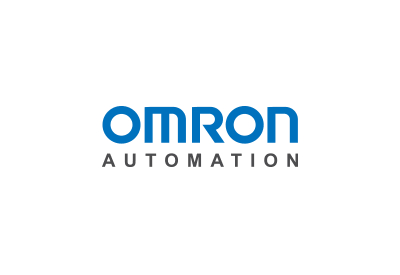Automation and Education: A Canadian Perspective

November 30, 2018
By: Blake Marchand
When it comes to automation and its associated fields debate certainly remains as to its future direction, as well as the subsequent affects it will have on the workforce. However, there is consensus that education and cross-sector co-operation will be key factors to maximize that innovative potential.
Subsequently, talent is becoming a key factor in the decision making for manufacturers when it comes to choosing locations for manufacturing. From that perspective, if governments bolster their education related policy it can have a positive affect on their local markets, as well as the commercialization of new innovations. Similar to off-shoring trends that have taken place in the past, ‘next-shoring’ – when manufacturers locate operations relative to their access to skilled labour and innovative centres – will need to be observed by education and government stakeholders in order to fully realize the benefits automation presents.
The development of talent is crucial in positioning countries and regions to commercialize new technologies. Although, governments also need to facilitate the connection between the innovation taking place in universities and the businesses that will implement those technologies in the market. An example of this is the Easy Access IP Initiative, a global initiative launched by the UK in 2010. The initiative allows access to IP from participating universities for start-ups free of the typical legalities when it comes to licensing intellectual property and the associated costs. This encourages companies to commercialize innovative technologies, as well as universities to continue to develop those technologies once they have left the intellectual sector. Currently, The University of Ottawa and École de Technologie Supérieure are Canada’s only participating universities. Policies such as this will be necessary for Canada to facilitate a return on its R&D investments.
There are also independent organizations in Canada like TandemLaunch and TEC Edmonton that work with universities and entrepreneurs to develop tech start-ups. These organizations support entrepreneurs by facilitating access to markets, technology, talent, investment, as well as mentorship and operational support.
Currently, Canada is among world leaders when it comes to education, boasting several world class engineering programs. Although, according to the Centre for international Governance Innovation, Canadian Universities are ill-equipped to take these innovations to market themselves. Similarly, Professor Alan Manning of London School of Economics, says, “I don’t think you can just leave it to the market and believe it will deliver the right level of innovation,” (Automation Readiness Index, 7).
At this stage of automation’s progression, education remains a catalyst. As the Automation Readiness Index report issued by The Economist Intelligence Unit sponsored by ABB suggests, no country is completely equipped to handle the next phase of automation. The countries that are the most equipped, like Germany, South Korea, and Singapore, have put emphasis on education and policies encouraging innovation. And that, in most cases, needs to be facilitated by government policy.
The University of Toronto and the University of British Columbia have been leading the way as Canada’s top schools for engineering, while also popping up on world rankings (U of T is ranked 29th by The World University Rankings, and UBC is ranked 62nd). U of T has 8,000 engineering students in graduate and undergraduate programs across eight core study areas, while also offering unique specializations at the graduate level including Aerospace Engineering and Biomedical Systems Engineering. While UBC similarly offers 21 specializations within their Applied Sciences department. UBC has also established itself as a premier research university. The University of Western has an accelerated Masters program that allows students to complete graduate courses while obtaining their undergraduate degree, which allows students to obtain their Masters of Engineering in five years.
Canadian colleges like Fanshawe and Algonquin in Ontario, also offer courses in areas like electromechanical engineering. Canada has 54 institutions that offer Electrical Engineering programs, and 89 that offer Engineering programs.
Overall Canada ranks fifth on The Economist’s readiness index, which is in large part due to the leadership shown by its educational institutions. In particular, the provinces have adapted their “educational systems and teaching approaches to the demands posed by advanced technologies” (Automation Readiness Index).
Ontario, Quebec, British Columbia, and Alberta are leading the way for Canada when it comes to ICT (Information and Communication Technologies). As of 2017, Ontario is outpacing the rest of Canada by a considerable margin, contributing $34.8 billion to Canada’s total ICT output, while Quebec contributed $16.9 billion. Alberta and BC produced $9.1 billion and $9.7 billion, respectively (ICTC Digital Economy Annual Review 2017).
Although, despite their achievements, Karima Bawa of The Centre for International Governance Innovation explains, “Canadian universities fail to optimally leverage their research output to advance productization of innovation and hence economic outcomes.”
“This is, in part,” Bawa continues,” because in Canada, as in many other countries, there is an expectation that universities, the producers of the research, will advance innovation by starting up companies and by filing and licensing patents. There is evidence, however, that Canadian universities are not equipped to do this” (Centre for International Governance Innovation).
This appears to be the next step for Canada’s progression as an automation/ICT leader, developing policies that will bridge the gaps between research and application.
As technologies progress and the demand for skilled workers increases, Canada, and in particular Ontario, should be well situated to attract manufacturers looking to gain the geographical edge when it comes to talent acquisition. However, Canada and its provinces will have to continue to develop their educational policies and frameworks as automation and ICT continues to progress.
Sources:
Bawa, Karima. 2017, April. After Failing to Commercialize, Universities Learn to Set Ideas Free. Centre for International Governance Innovation. https://www.cigionline.org/articles/after-failing-commercialize-universities-learn-set-ideas-free.
Digital Economy Annual Review 2017, The Information and Communications Council. https://www.ictc-ctic.ca/wp-content/uploads/2018/02/ICTC-Annual-Review-2017-EN.pdf.
The Automation Readiness Index: Who is Ready for the Coming Wave of Automation?. The Economist Intelligence Unit Sponsored by ABB.






